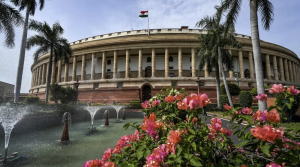New Delhi, Nov 30: After considering the claims made by certain Members of Parliament that the law is frequently “misused,” a parliamentary panel has suggested that the two-year jail sentence for anyone who assaults or uses illegal force to prevent a public official from performing his or her duties be lowered to one year. After reviewing the three proposed criminal statutes, the Parliamentary Standing Committee on Home Affairs, led by BJP member Brij Lal, issued the recommendation. Section 353 of the Indian Penal Code (IPC), which is equivalent to clause 130 of the Bharatiya Nyaya Sanhita (BNS), is allegedly “widely misused by public servants in the name of deterrence,” according to certain committee members who supplied this information in the report.It was suggested that the punishment under this clause be lowered because political demonstrations are the lifeblood of democracy and because there have been cases in the past where political leaders have been hounded and wrongfully convicted for offences under this section of the IPC while protesting. It stated, “The committee recommends that the punishment provided under clause 130 may be reduced from two years to one year and agrees with the submission made before it.” According to BNS clause 130, anyone who assaults or uses criminal force against a public servant while that person is carrying out his or her duties, or who does so with the intention of preventing or discouraging that person from carrying out those duties, or as a result of anything that person does or attempts to do while lawfully carrying out those duties, faces a term of imprisonment of any kind up to two years, a fine, or both. On August 11, the Bharatiya Nyaya Sanhita (BNS-2023) bill, Bharatiya Sakshya Adhiniyam (BSA-2023) bill, and Bharatiya Nagarik Suraksha Sanhita (BNSS-2023) bill were introduced in the Lok Sabha. The three proposed legislation aim to supersede the Indian Evidence Act of 1872, the Indian Penal Code of 1860, and the Code of Criminal Procedure Act of 1898, in that order.

